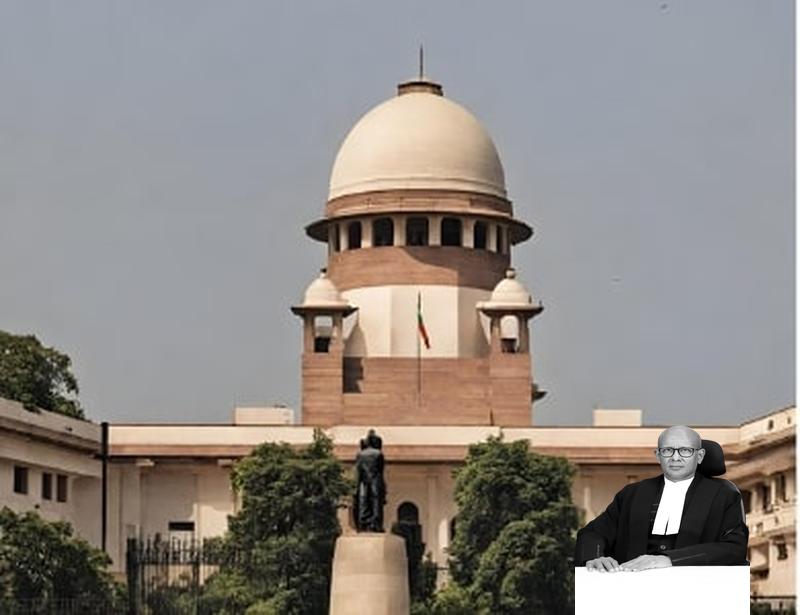The prayers in the plaint are comprehensive enough for declaration, injunction, partition, and separate possession for the plaintiff’s one-third share in the plaint schedule property.
Kukillaya and Sripathi Rao’s property and on the west by common entrance from Gomathy Narayanaswamy Road.”
Defendants 1 and 2 are the father and brother of the plaintiff. The third defendant, enforcing the rights under the agreement dated 18.07.1974, filed OS No 2595 of 1981 before the City Civil Court, Madras, for specific performance. On 13.03.1995, Appeal No 165 of 1984 was allowed and specific performance of agreement of sale dated 18.07.1974 was granted by the High Court of Judicature at Madras.
The plaintiff, being a coparcener, is entitled to equal share in the plaint schedule property with her father and brother, d. As the coparceners, the plaint schedule cannot and could not be treated as a property held by the Hindu Undivided Family of the plaintiff and Defendants 1 and 2.
whether a partition was carried out in the family even on 24.2.80 and consented that the suit property was owned by 1st and 2 defendants. In law, a coparcener is entitled to claim for partition and converse of the said right because Defendants 1 and 2 cannot, in law, convey one- third of the plaintiff’s share in the coparcenary in favour of the third defendant. He further argues that the consideration by the High Court or the Trial Court is not from the perspective of entitlement of an unmarried daughter under Section 29A of an Amendment Act but from the finality attached to the Judgement in Appeal No.165/1984.
The learned Counsel does not join the issue of whether members of the coparcenary can enter into a partial partition or not but argues by referring to a partial partition deed dated 24.02.1980(Exhibit A3). 1 and 2, treating the plaint schedule property as a coparcenary property is unavailable, and the Courts below have rightly rejected the claim. Briefly stated, the applicability of Section 29A is not the deciding factor but the deciding factor in the case on hand is whether the suit property is available for partition. The partial partition allocated the property in Schedule-A to Defendants 1 and 2 and Schedule B to the parties of the second part, i.e., the plaintiff herein.
In this aspect, the plaintiff has admitted that the present suit schedule property belongs to the first and second defendants and has taken separate possession of the ‘B’ Schedule in Exhibit-A3 partial partition. The fact that the plaintiff has earned the legal standing of a coparcener cannot, by itself, would be a reason to accept the prayer for partition unless the plaintiff discharges the burden that the partial partition through Exhibit-A3 did not affect the coparcenary rights in Schedule-I appended to Exhibit-A3.
In whichever way we appreciate, the plaintiff still failed to demonstrate that the plaint schedule continued to be a coparcenary available for partition.
Case Title: H. VASANTHI Vs. A. SANTHA (DEAD) THROUGH LRS. AND ORS. (2023INSC731)
Case Number: C.A. No.-007374-007374 / 2008



